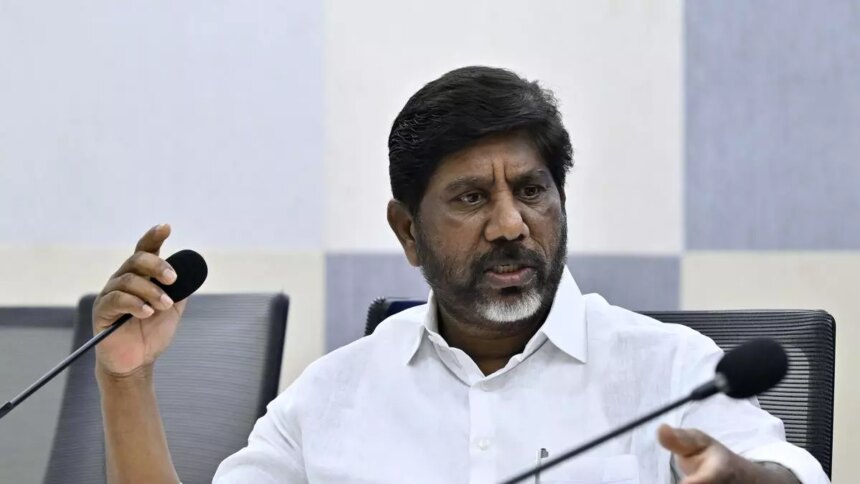Telangana has advocated for a growth-centered strategy to decrease its debt-to-GDP ratio, instead of relying on austerity measures. During a pre-budget meeting convened by Union Finance Minister Nirmala Sitharaman in Jaisalmer, Deputy Chief Minister and Finance Minister Bhatti Vikramarka Mallu emphasized the need for a realistic fiscal deficit target of 4.5% of GDP. He stated that starting from FY27, the state prioritizes a growth-driven method for reducing its debt levels.
Mallu also addressed national challenges and priorities, highlighting the necessity for simplifying India’s tax system. He called for reforms in the Income Tax Act, specifically urging the simplification of tax brackets and a reduction of corporate tax rates to foster a better business environment. He noted that the current income tax and GST filing procedures are time-consuming for mid-sized and large firms, often taking weeks. Therefore, he proposed expanding the tax base through the digital tracking of financial transactions and promoting voluntary compliance.
Additionally, Telangana requested increased Special Assistance to States for capital expenditures, seeking an annual allocation of ₹2.5 lakh crore. The Deputy Chief Minister stressed the need for flexibility in fund utilization without restrictive conditions typically associated with Centrally Sponsored Schemes (CSS).
Regarding the revival of Micro, Small, and Medium Enterprises (MSMEs) and technological modernization, he proposed establishing a Technology Upgradation Fund specifically for MSMEs. He also requested the extension of Production-Linked Incentive (PLI) schemes to cover sectors such as power electronics, plastics recycling, and emerging technologies.
Furthermore, he called for a reduction or exemption of GST on essential machinery to lower production costs and facilitate the adoption of Industry 4.0 technologies. Telangana also put forth the idea of creating a national framework for social security for gig workers, ensuring provisions like health insurance, pension schemes, and accident coverage. Formal recognition of gig workers is critical for guaranteeing minimum wage protections and labor rights.
On matters specific to Telangana, the Deputy Chief Minister sought greater borrowing flexibility and fiscal autonomy to help the state achieve its development objectives. He requested that Net Borrowing Ceilings and tax devolution figures be disclosed during the budget presentation and advocated for removing borrowing conditionalities to create more fiscal space.
He also called for a fair share of funding from Centrally Sponsored Schemes, arguing that despite being one of the fastest-growing states and significantly contributing to the national economy, Telangana has faced underfunding under CSS. He urged that allocations be based on population ratios and disbursed promptly and fairly.
Furthermore, the Deputy Chief Minister sought the resolution of pending dues under the Andhra Pradesh Reorganization Act of 2014 and requested funding for vital infrastructure projects, such as industrial parks, irrigation initiatives, and highway networks. He emphasized the importance of extending the Smart Cities Mission to emerging urban centers and asked for increased allocations to address rural job distress through the innovative use of MGNREGA funds. Finally, he highlighted the need for dedicated Union funds to bolster climate resilience initiatives in the state.










